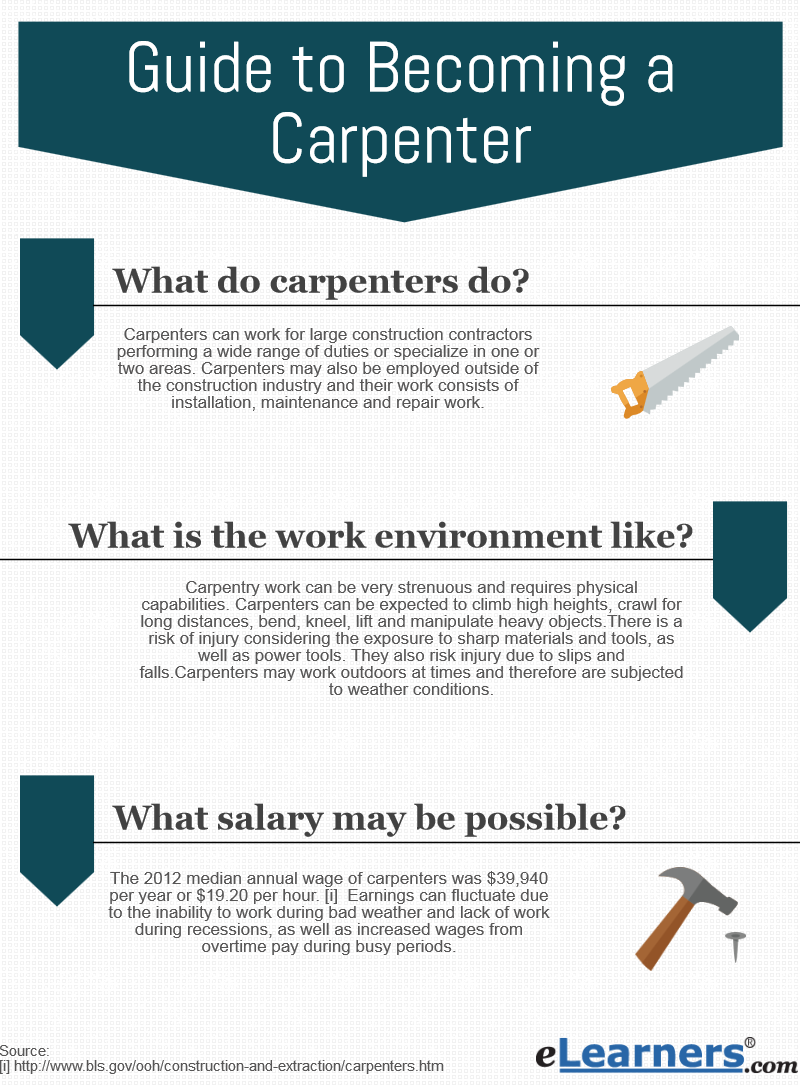How To Become A Journeyman Carpenter

While its true that some journeyman carpenters have a college degree its generally possible to become one with only a high school degree.
How to become a journeyman carpenter. As with most building trades the traditional path to journeyman status has been through an apprenticeship. Other degrees that we often see on journeyman carpenter resumes include bachelors degree degrees or diploma degrees. Completing an apprenticeship program can take 3-4 years after which time carpenters become journey workers.
A high school diploma is usually required and you need a drivers license to travel to work at various job sites. Once you have completed this training you are considered a journeyman carpenter. In addition Journeyman Carpenter typically reports to a supervisormanager.
Qualifications for a journeyman carpenter role are a formal apprenticeship a high school education and work experience. Most of those programs require that you have a drivers license. You need a high school diploma or GED certificate as the basic educational requirement.
Besides working the same schedule as the regular crew apprentices take classes one or two evenings a week paid for by their employer to develop the knowledge and experience required to pass a certification exam and become a journeyman carpenter. Furthermore 15 earned their masters degrees before becoming a journeyman carpenter. Without your high school diploma you may not be accepted into an apprenticeship program and your career will stall before it gets a chance to start.
Carpentry apprenticeship programs require you to complete at least 144 hours of training and 2000 work hours per year. How to Become a Journeyman Carpenter Qualifications for a journeyman carpenter role are a formal apprenticeship a high school education and work experience. Training and Education Requirements Typically carpentry is learned on the job or through an apprenticeship program.
Being a Journeyman Carpenter gains or has attained full proficiency in a specific area of discipline. You will also receive on-the-job training after your formal apprenticeship program ends. Gaining this experience is the last.



















